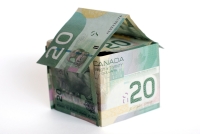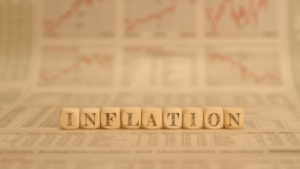 My latest MoneySense Retired Money column looks at the question of whether seniors or those near Retirement should consider taking out a reverse mortgage. Click on the highlighted headline for the full column: Why a reverse mortgage should be a last resort for most Canadian retirees.
My latest MoneySense Retired Money column looks at the question of whether seniors or those near Retirement should consider taking out a reverse mortgage. Click on the highlighted headline for the full column: Why a reverse mortgage should be a last resort for most Canadian retirees.
At first glance, reverse mortgages sound appealing, especially for those whose wealth mostly resides in their home equity. If you have little other sources of future retirement income, and especially if you have no heirs who will be annoyed at having a reduced inheritance, then the prospect of living in your home in old age and generating tax-optimized retirement income to boot does sound appealing.
Have your Home and your Money too?
As P.J. Wade wrote in her 1999 book, Have Your Home and Money Too, reverse mortgages can be “your best friend or your worst enemy … your choice!”
However, there’s not a lot of Reverse Mortgages available in Canada. The two main ones of which I’m aware are Equitable Bank and HomeEquity Bank (aka CHIP). According to Rates.ca “Reverse mortgages always cost more than conventional mortgages because the lender’s funding costs are higher.”
The full column includes input from occasional MoneySense contributor Allan Small, who is a senior investment advisor with IA Private Wealth Inc. as well as a podcaster. He says reverse mortgages “have not played a part in any of the retirement plans and retirement planning that I have done so far in my career. I think the reverse mortgage idea or concept for whatever reason has not caught on.” Also, “those individual investors I see usually have money to invest, or they have already invested. Most downsize their residence and take the equity out that way versus pulling money out of the property while still living in it.”
Milevsky: It all depends on to what a financial strategy is compared
For me, the definitive word on Reverse Mortgages or any other financial instrument goes to noted Finance professor and author Moshe Milevsky. He told me in an email that when it comes to reverse mortgages – or any other financial strategy or product in the realm of decumulation – “I always ask this question before giving an opinion: Compared to what?” He worries about the associated interest rate risk, which is “difficult to control, manage or even comprehend at advanced ages with cognitive decline.”
What are the alternatives to a reverse mortgage? Is it selling the house and moving? Or, Milevsky asks, “Is the alternative reducing your standard of living? Is the alternative taking a loan from a local bookie? It’s the alternative that determines whether the reverse mortgage is a good idea or not … Generally I will not rule them out and I think they will continue to grow in popularity among retiring boomers, but I wouldn’t place them at the very top of the to-do list when you get to your golden years.”
 In what it says is its first new ETF announcement in four years, Vanguard Investments Canada Inc. today announced a new Fixed-Income ETF designed to met investors’ short-term savings needs. Here is the full release on Canada News Wire.
In what it says is its first new ETF announcement in four years, Vanguard Investments Canada Inc. today announced a new Fixed-Income ETF designed to met investors’ short-term savings needs. Here is the full release on Canada News Wire.





